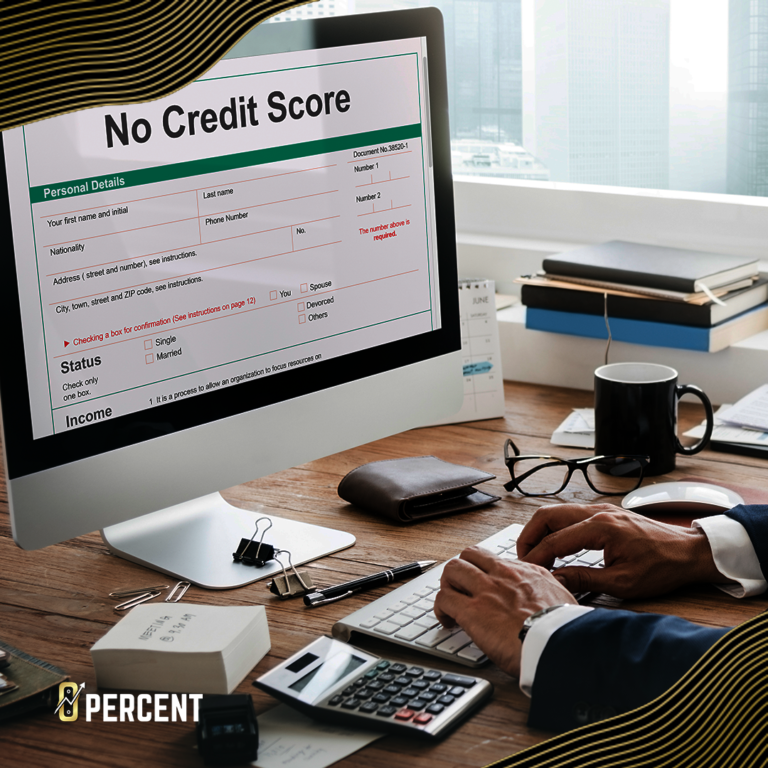
Jeff Sekinger
Jeff Sekinger Founder & CEO, 0 Percent Who is Jeff Sekinger? Visionary Trailblazer Sekinger has been in the financial industry for over a decade. Starting
Starting and running a successful business involves numerous factors, and one of the key elements that can significantly impact a company’s growth and stability is its credit score. While personal credit scores are widely known and understood, many entrepreneurs overlook the importance of building and maintaining a strong business credit score. In this article, we will explore the significance of a robust business credit score and provide valuable insights on how to build, maintain, and leverage credit to drive success in your business endeavors.

A business credit score is a numerical representation of a company’s creditworthiness and financial health. Similar to personal credit scores, business credit scores are calculated based on various factors such as payment history, credit utilization, length of credit history, public records, and industry risk. It provides lenders, suppliers, and potential business partners with an objective measure of the business’s creditworthiness and ability to meet financial obligations.
A strong business credit score opens doors to funding opportunities that can fuel business growth. Lenders and financial institutions rely on credit scores to assess the risk associated with lending money to a business. A higher credit score improves the chances of securing favorable financing options, including business loans, lines of credit, and business credit cards.
A robust business credit score establishes credibility and trust with suppliers and vendors. When seeking partnerships or negotiating contracts, suppliers often evaluate a company’s creditworthiness to determine the level of risk involved. A strong credit score reassures suppliers that your business is reliable and financially stable, leading to more favorable terms, discounts, and extended credit limits.
A favorable business credit score empowers you to negotiate better terms and rates with lenders, suppliers, and service providers. A higher credit score demonstrates your business’s ability to manage finances responsibly and reduces the perceived risk of lending or extending credit. This leverage allows you to secure lower interest rates, favorable payment terms, and improved contractual agreements.
A strong business credit score paves the way for growth and expansion opportunities. Whether you’re looking to open new locations, invest in equipment, or launch new product lines, a solid credit history increases your chances of obtaining the necessary funding. It provides the financial foundation needed to seize opportunities, scale your operations, and take your business to new heights.
Building a strong business credit score requires a strategic approach and consistent financial responsibility. Here are key steps to help you establish a solid credit foundation for your business:
To build a business credit score, it is essential to establish a separate legal entity for your business. This typically involves forming a corporation or a limited liability company (LLC). By separating your business’s legal identity from your personal identity, you create a distinct financial profile that enables the establishment of a business credit score.
An Employer Identification Number (EIN) is a unique nine-digit number issued by the Internal Revenue Service (IRS) for tax purposes. It serves as a social security number for your business and is required to open a business bank account, file taxes, and apply for credit. Obtaining an EIN is a crucial step in building your business credit score.
Opening a dedicated business bank account is vital for building a strong credit score. It separates your personal and business finances, making it easier to track business expenses and manage cash flow. A business bank account also demonstrates financial stability and professionalism to creditors and lenders.
Registering your business with commercial credit bureaus is instrumental in building a business credit score. Companies like Dun & Bradstreet, Experian Business, and Equifax Small Business compile and track business credit information. By providing them with accurate and updated business information, you increase your chances of establishing a solid credit profile.
Building strong relationships with suppliers and vendors can contribute to your business credit score. Timely payments and a history of positive interactions demonstrate reliability and trustworthiness. Ensure that you establish credit accounts with vendors who report payment information to credit bureaus, as this will help build your credit history over time.
Once you have established a strong business credit score, it is crucial to maintain it consistently. Here are some essential practices to uphold:
Paying bills and debts on time is crucial for maintaining a strong business credit score. Late payments can negatively impact your credit profile and lead to a lower score. Implementing efficient payment systems, setting up reminders, and prioritizing timely payments are effective ways to stay on top of your financial obligations.
Regularly monitoring your business credit reports is essential to identify any errors or discrepancies. Incorrect information can adversely affect your credit score, so it’s crucial to review and dispute inaccuracies promptly. Monitoring your credit reports also allows you to proactively address any negative changes or potential issues that may arise.
Prudent financial management is key to maintaining a strong credit score. This includes managing cash flow effectively, budgeting wisely, and avoiding unnecessary debt. By demonstrating responsible financial practices, you can strengthen your creditworthiness and ensure a healthy business credit profile.
Excessive debt and late payments can severely impact your business credit score. It is essential to manage your debt-to-credit ratio by keeping credit utilization low and making payments on time. High debt levels and a history of missed payments raise red flags to lenders and can hinder your ability to access favorable financing options.
A strong business credit score can unlock numerous opportunities and advantages for your business. Here’s how you can leverage your credit to drive success:
With a strong credit score, you gain access to favorable financing options that can fuel your business’s growth and expansion. Lenders are more likely to offer competitive interest rates, higher credit limits, and flexible repayment terms to businesses with a proven track record of responsible credit management.
A robust credit score empowers you to negotiate better terms and rates for loans and credit cards. Lenders consider a higher credit score as an indicator of lower risk, resulting in more favorable interest rates and repayment conditions. This allows you to save money on interest expenses and allocate funds towards business development.
A strong business credit score can facilitate building relationships with lenders and investors. Lenders are more inclined to offer funding to businesses with a solid credit history, while investors seek out promising companies with strong financial profiles. Leveraging your creditworthiness can attract potential investors and lenders, opening doors to strategic partnerships and growth opportunities.
A strong credit score increases your business’s credibility and enhances your reputation in the market. This can lead to collaborations and partnerships with other reputable companies, enabling you to expand your reach and tap into new markets. Business opportunities such as joint ventures, supplier agreements, and distribution partnerships become more attainable with a strong credit profile.
Improving your business credit score requires consistent effort and financial discipline. Here are some valuable tips to enhance your creditworthiness:
Paying your bills early or on time positively impacts your credit score. Timely payments demonstrate responsible financial behavior and contribute to building a solid credit history. Consider setting up automatic payments or implementing a reminder system to ensure you never miss a payment deadline.
Maintaining a low credit utilization ratio is crucial for improving your business credit score. Aim to keep your credit utilization below 30% of your available credit limit. This demonstrates that you manage your credit responsibly and are not overly reliant on borrowed funds.
Diversifying your credit accounts can boost your credit score. Having a mix of different types of credit, such as loans and lines of credit, shows that you can handle various financial obligations effectively. However, ensure you only take on credit that aligns with your business’s needs and repayment capabilities.
Regularly reviewing your business credit reports allows you to identify and address any errors promptly. Inaccurate information can significantly impact your credit score. If you notice any discrepancies, file a dispute with the credit bureau to rectify the issue and ensure your credit profile remains accurate and up to date.
While building and maintaining a strong business credit score, it is essential to avoid common pitfalls that can hinder your progress. Here are some mistakes to steer clear of:
Mixing Personal and Business Finances
Mixing personal and business finances can have detrimental effects on your credit score. Keep your personal and business accounts separate to maintain financial clarity and ensure that your personal credit history does not impact your business credit score.
Regularly monitoring your business credit score is vital. Ignoring it can result in overlooking negative changes or inaccuracies that could harm your creditworthiness. Stay proactive by monitoring your score and addressing any issues promptly.
Failure to meet payment obligations can significantly impact your business credit score. Make timely payments a priority to maintain a positive credit profile. Missing payments or defaulting on debts can lead to lower credit scores and limited access to financing options.
While personal credit plays a role in establishing business credit, relying solely on personal credit can hinder your business’s growth potential. Building a separate business credit history is essential for accessing favorable financing options and building credibility with suppliers and vendors.
A strong business credit score is a crucial asset for any entrepreneur or business owner. It not only opens doors to financing opportunities but also establishes credibility, enables favorable negotiations, and unlocks growth potential. By following the steps outlined in this article, you can build and maintain a robust credit score for your business, leveraging it for success and securing a solid financial foundation.

1. How long does it take to build a strong business credit score?
Building a strong business credit score takes time and consistent financial responsibility. It can typically take several months to a year to establish a solid credit history, depending on factors such as payment behavior and credit utilization.
2. Can I improve my business credit score if I have a poor personal credit history?
Yes, it is possible to improve your business credit score even if you have a poor personal credit history. By building a separate business credit profile and practicing responsible financial management, you can gradually improve your business’s creditworthiness.
3. Are there any shortcuts or quick fixes to improve my business credit score?
Building a strong business credit score requires a long-term commitment and responsible financial practices. There are no shortcuts or quick fixes to significantly improve your credit score overnight. Consistency, timely payments, and responsible credit management are key.
4. Can my business credit score affect my personal credit score?
No, your business credit score and personal credit score are separate entities. However, some lenders may consider your personal credit history when evaluating your business’s creditworthiness, especially for small businesses or startups with limited credit history.
5. Do all lenders and suppliers check business credit scores?
Not all lenders and suppliers check business credit scores, but many do. Lenders, banks, financial institutions, and larger suppliers often rely on business credit scores to assess creditworthiness. Therefore, maintaining a strong business credit score is crucial for accessing favorable financing terms and building strong relationships with suppliers

Jeff Sekinger Founder & CEO, 0 Percent Who is Jeff Sekinger? Visionary Trailblazer Sekinger has been in the financial industry for over a decade. Starting

Angel Alvarez Funding, 0 Percent Who is Angel Alvarez? From SpaceX to 0 Percent Angel is a remarkably well rounded individual who has had a

Abhay AnandProduct, 0 Percent Who is Abhay Anand? Title One Test Title Two Test Test
Sign up for our newsletter to stay in the loop.
Sign up to receive news & updates!
Sign up to receive news & updates!